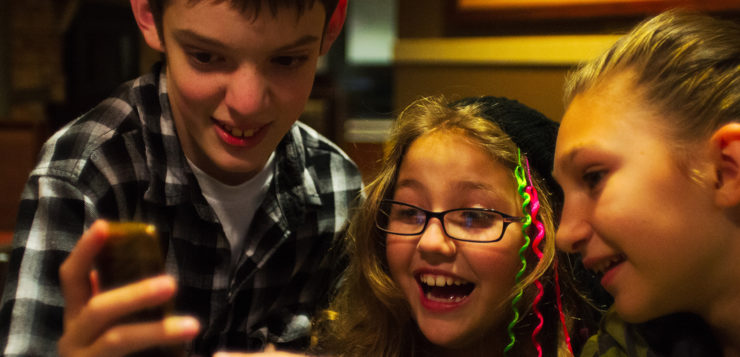If you haven’t been watching the debate slowly gathering pace in the United States about the ‘safety’ of popular social media app TikTok, then it’s worth tuning in, at least briefly.
That’s partly because Australians are also big users of TikTok, and we almost always follow US trends, Namely, TikTok is also likely to provide a helpful ‘bogeyman’ in Australia for conservatives to terrify parents once the trans-are-coming-for-our-kids scare runs out of steam.
TikTok, which was launched in 2018, is a video sharing app where people – mostly kids – create short-form content focussing on mindless shit, in particular bad dancing, how much of a ‘sense of privilege’ you can jam into a short video, and tantrums. Depending whose figures you believe (we’ve used Statista, which is a moderately reliable source), TikTok is now the world’s sixth most popular social media app. And it’s that meteoric rise in popularity that has got American leaders, well, faux terrified, because as it turns out, the app is owned by a Chinese a company… aka, the Chinese government.
Earlier this year, the Biden administration repeated threats first levelled by the Trump administration that TikTok must either be sold to an American firm (or at the very least a non-Chinese firm), or it’ll be banned outright in the US.
The theory goes that the Chinese government is using TikTok to corrupt American society. The obvious problem with that theory is that American society doesn’t need help from anyone, let alone China, to corrupt itself and ruin its children. And the argument looks even more ridiculous when you consider the ownership of other social media giants dominating the market.
The world’s most popular social media app is Facebook (owned by Meta), followed by Youtube (owned by Google), then Whatsapp (owned by Meta), Instagram (owned by Meta), WeChat (another Chinese app), and then TikTok. Then there’s Facebook Messenger (Meta again), Douyin (another Chinese app) and Telegram (owned by a Russian billionaire).
With that sort of ‘diversity’, what could possibly go wrong? It certainly doesn’t seem to be a focus for American lawmakers, seen here earlier this month grilling the CEO of TikTok who, disappointingly, turns out to be from Singapore, not China.
The first video below is a three-minute precis of Shou Zi Chew’s testimony before a hostile and bi-partisan US congress. But if you’ve got five and a half hours up your sleeve, the second video is the extended C-Span version, which is deeply ironic if you think about the average length of TikTok content (in 2020, videos from 11 to 17 seconds performed best on the app).
But according to Politico magazine, all the Septic Tank tough-talking may be just that, because Washington doesn’t really have the power to ban the platform, even if it wanted to.
Reports Politico: “I don’t really care what Congress writes, or what the administration writes. They’re not going to ban TikTok,” said James Lewis, director of the Strategic Technologies Program at the Center for Strategic and International Studies think tank. “They can ban financial transactions, or they can try to force divestiture. But they don’t have the ability to ban TikTok itself.”
Cue the tens of millions of American children breathing a sigh of relief, and then returning to their ‘Blackout Challenge’, a TikTok craze that caught on in 2022 where children hung themselves with basic household items until they passed out, then filmed their euphoric regaining of consciousness… basically, ‘Gasbo’ for kids.
The issue of natural selection aside, with around 15 deaths reported from the Blackout Challenge last year, it’s worth acknowledging that TikTok is not the leading killer of children aged one to 18 in the US.
That title belongs to firearms, which today kill almost three times as many children as cancer. Add that to the list of things Congress might get angry about. Or not.
Donate To New Matilda
New Matilda is a small, independent media outlet. We survive through reader contributions, and never losing a lawsuit. If you got something from this article, giving something back helps us to continue speaking truth to power. Every little bit counts.




